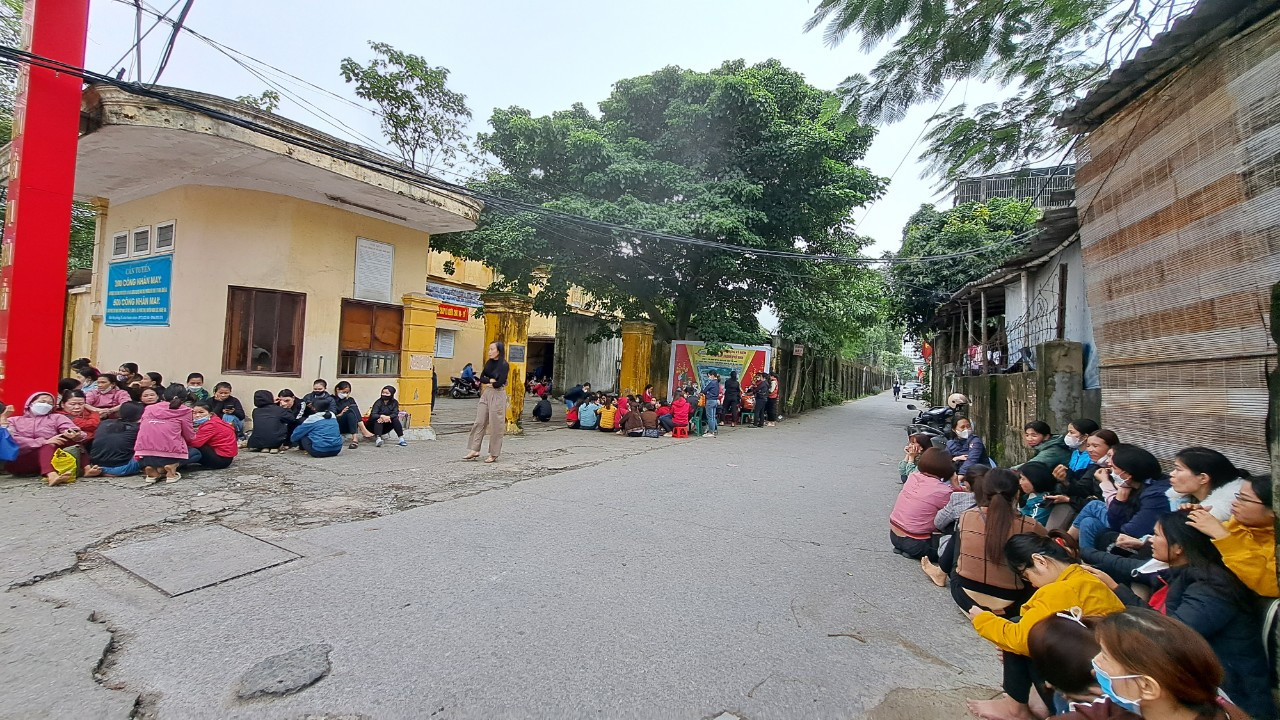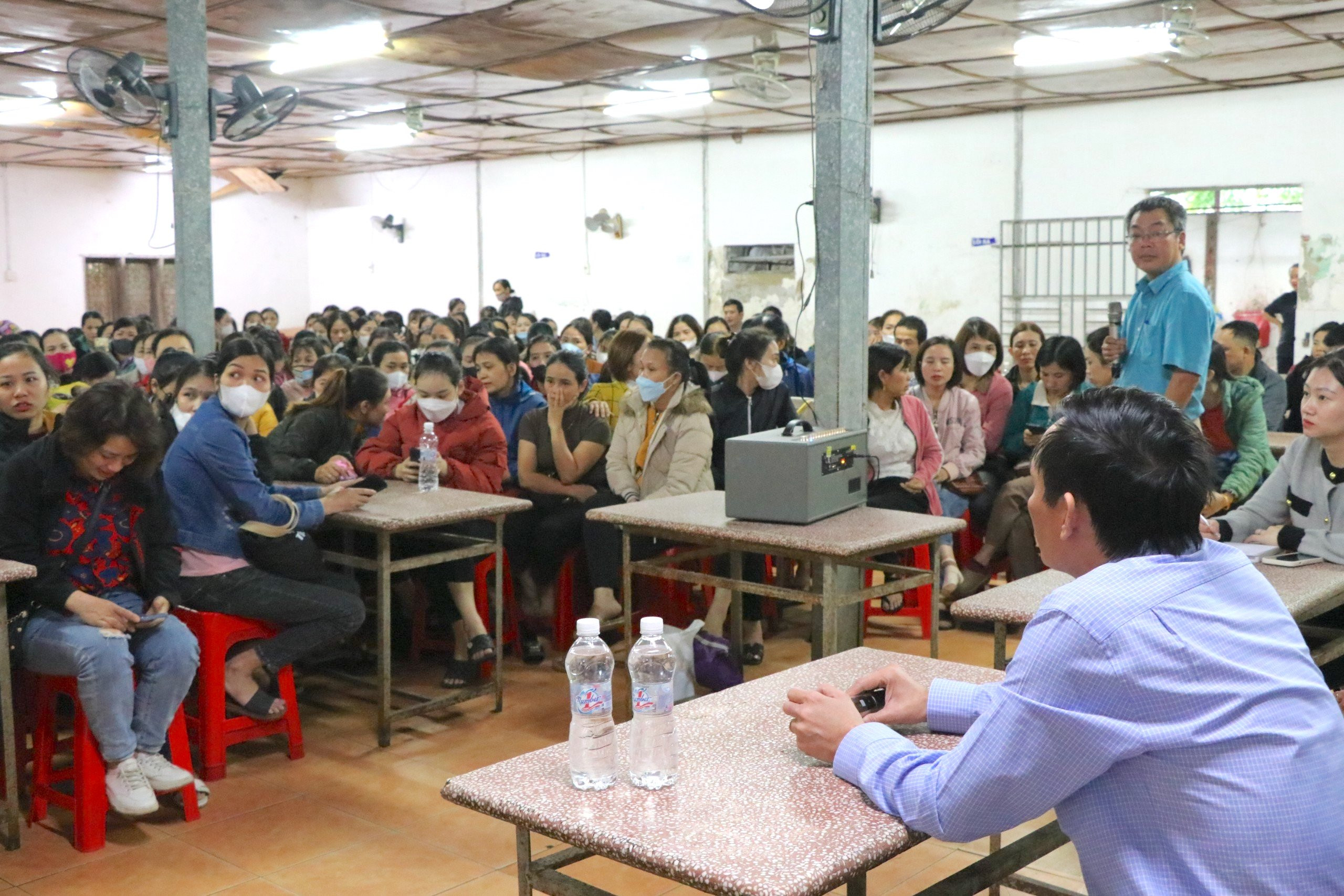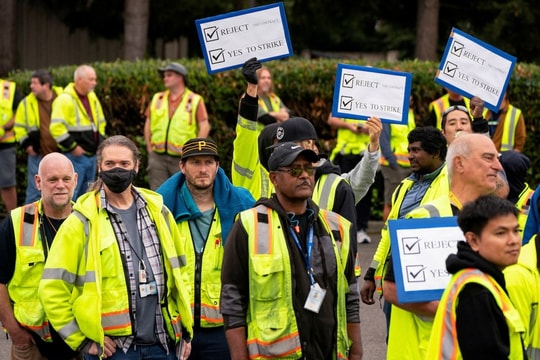Solutions to prevent conflicts in labor relations
(Baonghean.vn) - In reality, dialogue at the workplace is the best solution to resolve conflicts in labor relations, avoiding consequences of labor disputes and strikes in enterprises.
Why strike?
Dialogueat the workplace has been specifically regulated by law in Article 63 of the 2019 Labor Code: "Dialogue at the workplace is the sharing of information, consultation, discussion, and exchange of opinions between employers and employees or employee representative organizations on issues related to the rights, interests and concerns of the parties at the workplace, in order to enhance understanding, cooperation, and joint efforts towards mutually beneficial solutions."

In Nghe An, in the 5 years (2018 - 2023), strikes tended to increase with 22 strikes taking place at 22 enterprises, with more than 20,000 workers participating. Notably, the strikes were illegal, spontaneous, and did not follow legal procedures; the number of workers participating was large, lasting for many days, causing production disruption, damage to enterprises, affecting jobs and income of many workers, and affecting the investment environment. Typically, at Viet Glory Company Limited located in Dien Chau district, in 2022, there was a collective work stoppage with the participation of nearly 5,000 workers on strike for 5 days; in 2023, there was a collective work stoppage with the participation of more than 6,000 workers, on strike for 7 days.
From the strikes and collective work stoppages across the country and in Nghe An, it can be seen that workers mainly petitioned about wages, labor standards, behavior, conditions, working environment, overtime, wages, meal allowances and allowances... All strikes were due to disputes between the collective of workers and employers. The most profound cause is still the lack of information between the parties involved in labor relations; employers have not really cared about the rights and interests of workers, have not really listened to the thoughts and aspirations of workers.

Many strikes originate from labor disputes at a factory, but because there is no forum for workers to exchange and make recommendations, they are incited and controlled, and then the strike spreads throughout the enterprise, becoming tense and very complicated. Enterprises that allow strikes to occur are due to the business owners applying their right to set salary levels, labor norms, allowances, and labor policies according to their own views and management methods. They deliberately misunderstand, lack goodwill, and even avoid dialogue. They believe that dialogue is a waste of time, affects production, and workers often make demands while the company has fully implemented labor policies according to the law. On the other hand, grassroots unions are limited in capacity and experience, and are not bold enough to propose dialogue, thus leading to conflicts, strikes, and collective work stoppages, causing great damage to both enterprises and workers.
The key to “dialogue”
Besides the enterprises that do not conduct dialogue well at the workplace, there are also many enterprises that have conducted dialogue in a very rich form, such as organizing annual labor conferences; some directors have met with workers at the factory for about 30 minutes at the beginning of the month to exchange information and resolve requests from the labor collective. Many enterprises conduct weekly dialogue with representatives of the grassroots union and production departments such as: Haivina Kim Lien Garment Factory organizes to collect workers' opinions by ballot during the weekly lunch and management meetings to discuss 4 hours/week.

General Director of Luxshare-ICT Nghe An Co., Ltd. (with 9,000 employees) - Mr. Do Ky Giang said: "From the actual operation of the enterprise, we attach importance to implementing democracy, that is, placing suggestion boxes in the workshops, internal information network groups open 24/24h, suggestions and opinions of workers are processed daily. At the same time, creating the best conditions for grassroots trade unions to improve the spiritual life of workers and organizing dialogues with representatives of production departments. Through regular dialogues at the enterprise, employers can make correct decisions and management methods, create high consensus among the labor collective, promote democracy, contribute to creating strong motivation for workers to work more enthusiastically, and manage human resources healthily".
The long-term benefits of operating well in social dialogue forms are clearly shown in its impact on all business issues, from product quality, labor productivity, building a culture of self-awareness in the business and more importantly, all frustrations of workers are promptly resolved. This also helps businesses build relationships between business leaders and workers.

Ms. Hoang Thi Thu Huong - Chairwoman of the Southeast Economic Zone Trade Union said: “In the economic zone, many businesses have implemented daily dialogues in the early morning (from 10-15 minutes), monthly, 6-monthly, yearly dialogues... Besides direct meetings, workers can also text Zalo, phone, email, and give comments to the company's leaders at any time so that all parties can understand each other, share work quickly and reduce the time to draft documents, papers and opinions are clearly explained. Dialogue is truly an essential need in the workplace of businesses".
The grassroots trade unions of enterprises all believe that an appropriate dialogue mechanism will help enterprises grasp the thoughts and aspirations of workers, thereby having appropriate solutions.adjusttimely. Dialogue is a regular “channel” of consultation between the grassroots trade union and the enterprise and related parties. Dialogue has played an important role as a “bridge” to resolve existing problems and difficulties between the enterprise and the workers.
Good dialogue also motivates and encourages workers to contribute to production, increases labor productivity, brings high efficiency in production, helps workers feel secure in their work and be more attached to the business because they feel respected, they know that the business always cares about their lives,aspirationtheir. Workplace dialogue is indeed an effective solution to prevent labor disputes and strikes from occurring.





.jpg)



